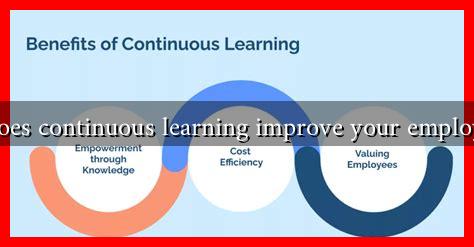-
Table of Contents
How Does Continuous Learning Improve Your Employability?
In today’s fast-paced and ever-evolving job market, the concept of continuous learning has become more crucial than ever. As industries transform and new technologies emerge, the skills that were once in high demand can quickly become obsolete. Continuous learning not only helps individuals stay relevant but also significantly enhances their employability. This article explores the various ways in which continuous learning can improve your job prospects and career growth.
The Importance of Adaptability
One of the most significant benefits of continuous learning is the ability to adapt to change. Employers are increasingly looking for candidates who can navigate the complexities of modern workplaces. Continuous learning fosters adaptability in several ways:
- Staying Updated: Regularly updating your skills ensures that you are aware of the latest trends and technologies in your field.
- Problem-Solving Skills: Engaging in new learning experiences enhances your critical thinking and problem-solving abilities, making you a valuable asset to any team.
- Flexibility: Continuous learners are often more open to change, which is a desirable trait in dynamic work environments.
Enhancing Skill Sets
Continuous learning allows individuals to expand their skill sets, making them more attractive to potential employers. Here are some ways in which enhancing your skills can improve your employability:
- Broader Skill Range: Learning new skills, whether technical or soft skills, can set you apart from other candidates. For instance, a marketing professional who learns data analytics can offer more value to their employer.
- Certifications: Obtaining certifications in your field can significantly boost your resume. According to a report by the World Economic Forum, 94% of business leaders expect employees to pick up new skills on the job.
- Networking Opportunities: Engaging in continuous learning often leads to networking opportunities with other professionals, which can open doors to new job prospects.
Case Studies: Success Through Continuous Learning
Numerous individuals and organizations have reaped the benefits of continuous learning. Here are a couple of notable examples:
- IBM: IBM has invested heavily in continuous learning programs for its employees. The company reported that employees who participated in these programs were 20% more likely to be promoted than those who did not.
- Individual Success Stories: Take the case of Sarah, a software developer who transitioned from a traditional coding role to a data science position. By taking online courses in machine learning and data analysis, she not only improved her skill set but also increased her salary by 30% within a year.
Statistics That Speak Volumes
Several studies highlight the importance of continuous learning in enhancing employability:
- A survey by LinkedIn found that 94% of employees would stay at a company longer if it invested in their career development.
- The World Economic Forum predicts that by 2025, 85 million jobs may be displaced due to automation, but 97 million new roles may emerge that are more adapted to the new division of labor between humans and machines.
Conclusion: The Path to Employability
In conclusion, continuous learning is not just a personal development tool; it is a vital component of employability in today’s job market. By fostering adaptability, enhancing skill sets, and providing networking opportunities, continuous learning equips individuals with the necessary tools to thrive in their careers. As industries continue to evolve, those who commit to lifelong learning will find themselves better positioned for success. Investing in your education and skill development is not merely an option; it is a necessity for anyone looking to secure their future in the workforce.
For more insights on continuous learning and its impact on your career, you can visit Forbes.

